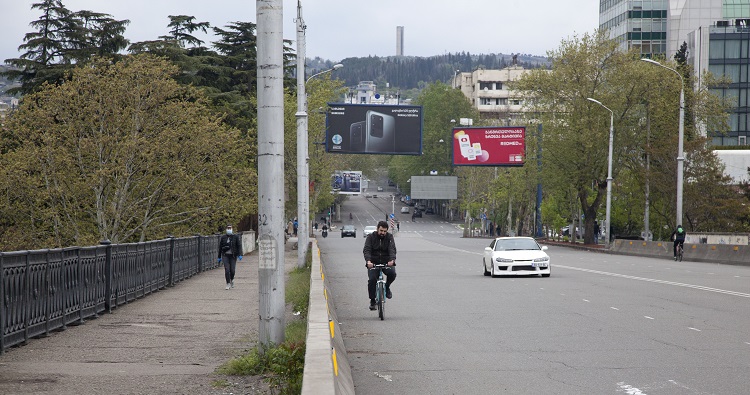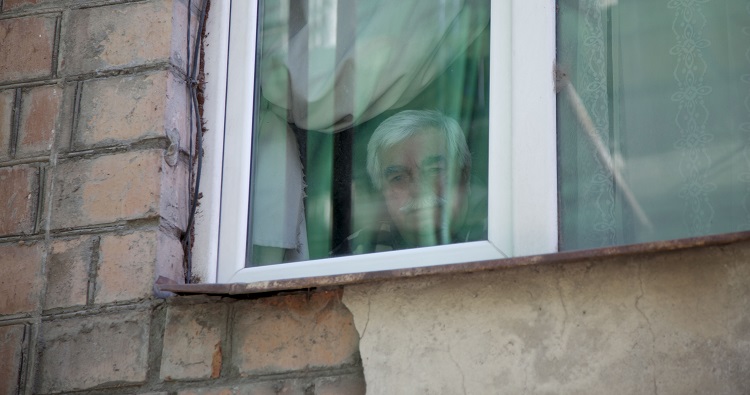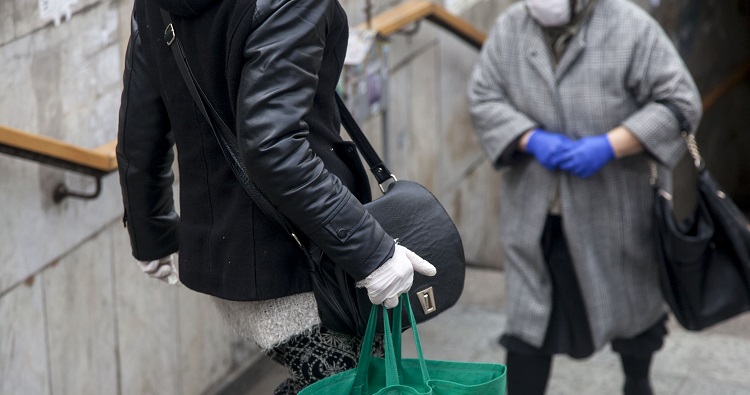State of emergency, curfew end, some restrictions remain in Georgia

Yesterday, the ruling party legislators passed a bill allowing the government to impose movement, labour, migration, economic and other restrictions without the declaration of the state of emergency temporarily, until July 15. Photo: Nino Alavidze/Agenda.ge
The 63-day state of emergency has come to an end at 00:00 on May 23, lifting movement and other coronavirus-related restrictions in Georgia.
However, the restriction banning more than three people in a car will be maintained for taxis. No public and municipal transport will be available at this point.
- Georgia declares state of emergency until April 21
- Parliament approves extension of state of emergency in Georgia until May 22
Yesterday, the ruling party legislators passed a bill allowing the government to impose movement, labour, migration, economic and other restrictions without the declaration of the state of emergency temporarily, until July 15.
These restrictions, the government says, aim to minimise the spread of the virus after the end of the state of emergency. However, the parliamentary opposition, which boycotted the vote, does not agree.
 Georgia first declared the state of emergency on March 21 to contain the spread of the coronavirus. Photo: Nino Alavidze/Agenda.ge
Georgia first declared the state of emergency on March 21 to contain the spread of the coronavirus. Photo: Nino Alavidze/Agenda.ge
The regulations that remain in place include the use of face masks, maintaining social distancing, and bans on gatherings of more than 10 including for birthdays, weddings and funerals.
Cafes, bars and restaurants will still offer 'take away' services, while shoes and clothes can be purchased online only.
Shopping malls are not also reopening yet, but some of the agrarian markets have resumed functioning in the Georgian capital of Tbilisi and regions.
 The date when restrictions on public transport services will be removed remains unknown as it depends on the epidemiological situation in the country. Photo: Nino Alavidze/Agenda.ge
The date when restrictions on public transport services will be removed remains unknown as it depends on the epidemiological situation in the country. Photo: Nino Alavidze/Agenda.ge
Although restrictions have been lifted in the quarantined Bolnisi Municipality in eastern Georgia, two of its villages - Mushevani and Geta - remain under the lockdown.
The municipality of Tetritskaro in Kvemo Kartli will also remain in quarantine.
As of now, Georgia has a total of 723 confirmed cases of the coronavirus, including 495 recoveries and 12 deaths.
No new cases have been reported since yesterday morning.
 Tweet
Tweet  Share
Share